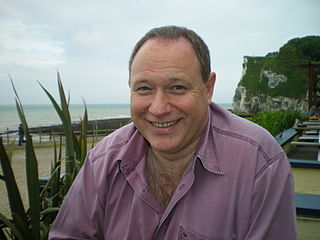A Quote by Jean de la Bruyere
The very impossibility which I find to prove that God is not, discovers to me his existence.
Related Quotes
I do not deny God, because that word conveys to me no idea, and I cannot deny that which presents to me no distinct affirmation, and of which the would-be affirmer has no conception. I cannot war with a nonentity. If, however, God is affirmed to represent an existence which is distinct from the existence of which I am a mode, and which it is alleged is not the noumenon of which the word I represents only a speciality of phenomena, then I deny God, and affirm that it is impossible God can be.
There is exactly the same degree of possibility and likelihood of the existence of the Christian God as there is of the existence of the Homeric god. I cannot prove that either the Christian god or the Homeric gods do not exist, but I do not think that their existence is an alternative that is sufficiently probable to be worth serious consideration.
To me the sole hope of human salvation lies in teaching Man to regard himself as an experiment in the realization of God, to regard his hands as God's hand, his brain as God's brain, his purpose as God's purpose. He must regard God as a helpless Longing, which longed him into existence by its desperate need for an executive organ.
If my interlocutor desires to convince me that Jupiter has inhabitants, and that his description of them is accurate, it is for him to bring forward evidence in support of his contention. The burden of proof evidently lies on him; it is not for me to prove that no such beings exist before my non-belief is justified, but for him to prove that they do exist before my belief can be fairly claimed. Similarly, it is for the affirmer of God's existence to bring evidence in support of his affirmation; the burden of proof lies on him.
It is not unreasonable to assume that the works of God, their existence and preceding non-existence, are the result of His wisdom, but we are unable to understand many of the ways of His Wisdom in His works. On this principle the whole Law of Moses is based; it begins with this principle: "And God saw all that He had made, and behold, it was very good" (Gen. i. 31); and it ends with this principle: "The Rock, perfect is His work" (Deut. xxxii. 4). Note it.
At that instant he knew that all his doubts, even the impossibility of believing with his reason, of which he was aware in himself, did not in the least hinder his turning to God. All of that now floated out of his soul like dust. To whom was he to turn if not to Him in whose hands he felt himself, his soul, and his love?







































